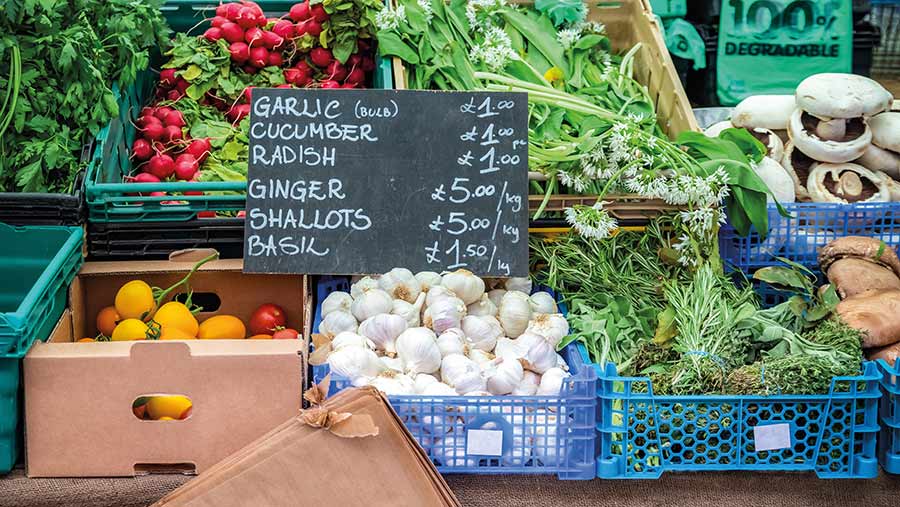Opinion: Now is the time to deliver real change in the UK’s food system
 © Wei Huang/Adobe Stock
© Wei Huang/Adobe Stock Over the past few decades, the UK’s agri-food supply chain has become centralised and opaque, with just 12 supermarkets controlling about 95% of a retail market that is worth roughly £200bn a year.
This has correlated with decreasing farm incomes, where today, on average, UK farmers get 8% of the customers’ food spend. That is unsustainable.
See also: Can supplying the public sector work for farmers?
About the author

James Woodward is the sustainable farming officer at Sustain – The alliance for better food and farming.
Here he explains why government and industry need to create new and better routes to market for local food producers.
Furthermore, supermarkets have historically used unfair trading practices to squeeze producers and push costs back onto farmers and smaller-scale suppliers.
This has included adding unexplained fees to invoices, cancelling orders at the last minute, and using price wars to compete with other supermarkets.
Research shows this has also created a risky food system, highly vulnerable to shocks.
In our recent farmer survey “Beyond the Farmgate”, we at Sustain found that English and Welsh farmers are ready for a change.
Most of the 500 we surveyed want to supply less to supermarkets and large-scale manufacturers, and more to a diverse array of markets that include food hubs, direct sales, independent retailers and the food service sector.
They want to do this because they see great benefits for their businesses, the environment and their local communities.
Those shorter, more localised supply chains would pay a fairer price, reward farmers to do more for climate and nature delivery, create better business resilience, connect producers and citizens more closely, and facilitate more collaboration at the local level between farmers and suppliers.
The farmers taking part in the survey also highlighted several barriers that need tackling.
A lack of access to affordable finance, accessible and flexible infrastructure, social networks, and marketing support and advice, are stifling change.
So there’s a willingness and desire for a different food future, and both national and local government could do an awful lot to break down those barriers.
They could support expansion in those shorter supply chains by identifying opportunities for growth at the local level.
They could reorientate some of the “levelling up” and other funds towards local food supply chain infrastructure and networks.
They could purchase more food for schools and care homes from local farms, and support dynamic food procurement to facilitate small and medium-sized enterprises accessing contracts.
It is imperative that we build food systems that are more focused on farmers’ and growers’ needs, as well as helping them to tackle challenges in the years ahead.
These challenges include major and unpredictable climatic changes; the urgent need to reverse the loss of nature and degradation of ecosystems including soils and water; the new trade deals that could undermine British farming businesses; shortage of workers; a less accessible EU market; and the rising costs of inputs.
All these clearly point towards the need to create new and better routes to market for our food producers.
Increasing the market share of shorter supply chains from 3.5% to even 10% of retail will require significant funding and policy shifts, including for the infrastructure needed, but the rewards are well worth the effort.
We want to see long-term ambition to increase the market share to 25% over the next 10 years.
As the UK government continues to develop new policies around farming, devolution and levelling up across the country, it must grab the opportunity to create a fairer, more resilient and more sustainable food system, from farm to fork.
